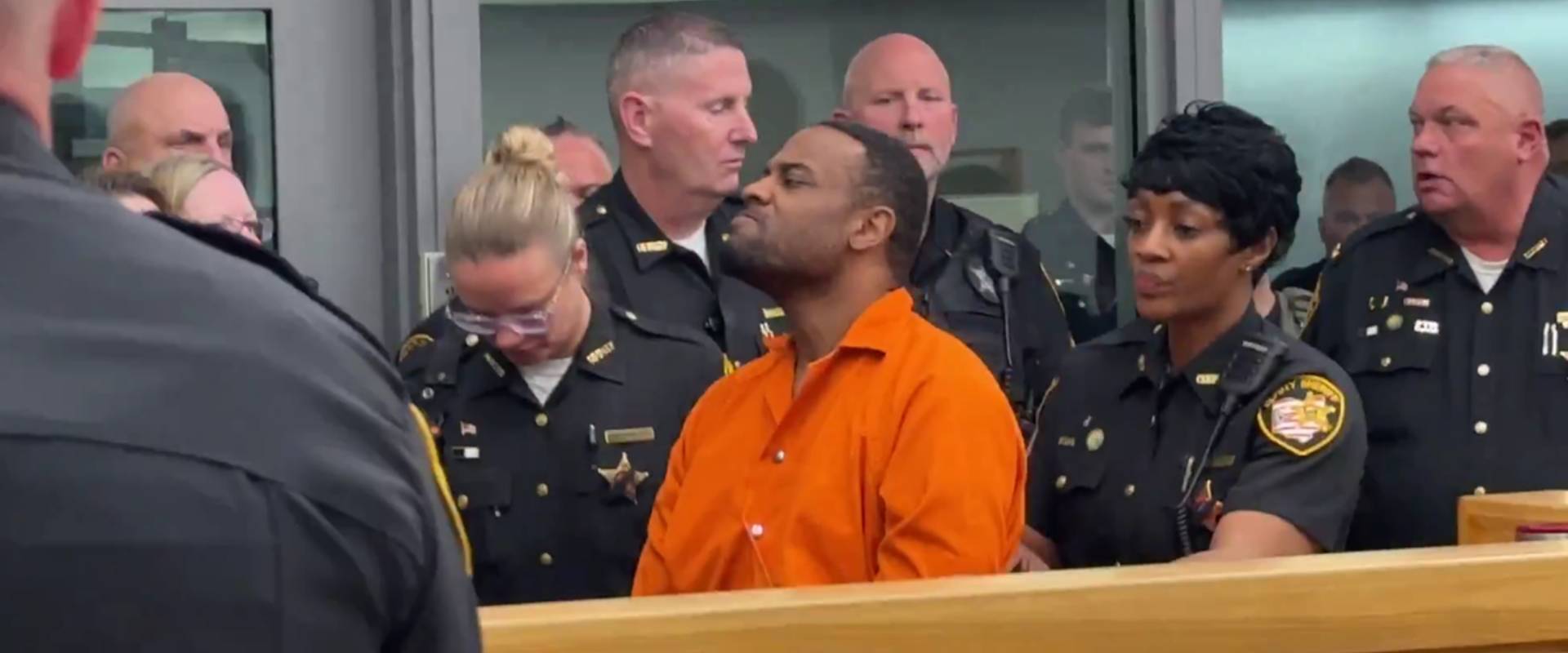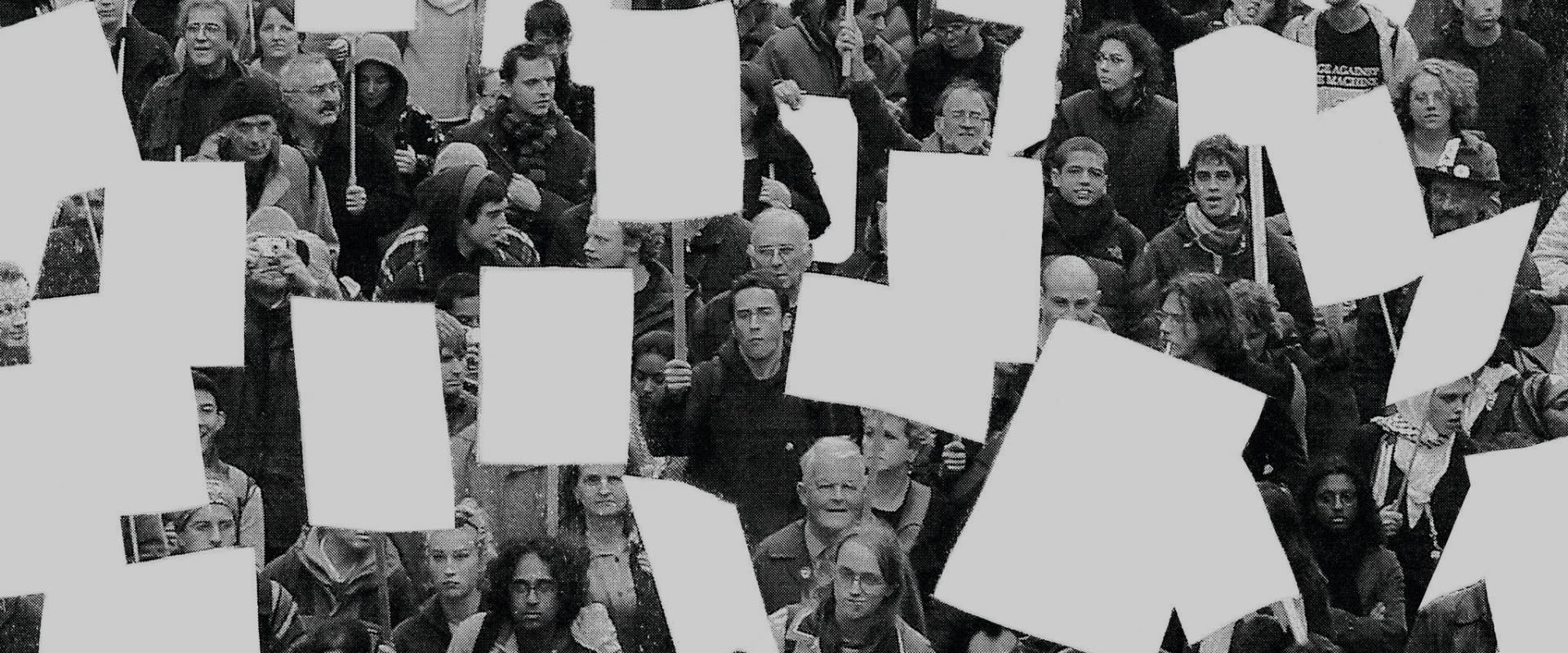By now it’s an all-too familiar story, as predictable as it is infuriating. A Black teenager is confronted by police over something minor. The police escalate the situation, and the teen tries to run away, only to be shot and killed by one of the cops. The community is outraged and the family calls for justice as their grief and anger is railroaded into numbing administrative procedure, justifications for state violence, and pleas for calm.
Such was the case with 18-year-old Ryan Hinton, who was brutally killed by Cincinnati Police early this month following his alleged involvement in a car theft.
Only this time, there was an unusual twist. The day after the killing of his son, an outraged and inconsolable Rodney Hinton Jr. allegedly took matters into his own hands and ran over a white sheriff’s deputy with his car, killing him instantly. Hinton was arrested and charged with aggravated murder.
The deputy, Larry Henderson, was not involved with the death of the younger Hinton, yet Hinton’s apparent act of vengeance has aroused sympathy and solidarity nationwide. Many have clearly had enough of racist police violence, and also understand that all cops are implicated in it. In this light, Rodney Hinton is being viewed as a hero, much like Luigi Mangione, who is now on trial for the murder of UnitedHealthcare CEO Brian Thompson, himself a notorious social murderer. This is shown in the flood of support Hinton has received online, and in the success of multiple GoFundMe fundraisers in his name, which were controversially removed by the company.
We at Firebrand extend our fullest solidarity to Rodney Hinton, whose child was stolen by racist police violence and who will be singled out for special punishment by the racist carceral system, probably for the rest of his life. While we don’t argue for vigilantism as a political way forward, lashing out over the state murder of one’s child is perfectly understandable and even rational. In this sense, Hinton’s alleged actions are “the language of the unheard,” as Martin Luther King Jr. famously said about Black rioters in the United States. As one online commenter put it, “The killing of that cop is what justice looks like in an unjust world.”
“We as Black people don’t deserve to be killed”
Why should it come as a surprise that Hinton acted the way he did after the killing of his son? Especially given the crushing reality of racist policing in the US — a reality of which every Black parent is painfully aware.
The details of the Ryan Hinton case are sadly typical. A gun was found at the scene, but there’s no indication, other than the word of the police, that it belonged to Ryan or that he used it. The blurry bodycam footage is inconclusive at best. We know cops lie all the time to cover up their bloodshed; we know Ryan was running away and that four or five shots were fired at him by one of the cops a mere six seconds after he attempted to flee.
While we don’t argue for vigilantism as a political way forward, lashing out over the state murder of one’s child is perfectly understandable and even rational.
The specifics don’t change the situation either way. Regardless of what Ryan Hinton was up to on the day he was killed, car theft and possession of a gun are not excuses for extrajudicial murder. He is yet another victim of racist police violence in the US — this is the unambiguous truth. His family knows it and we know it.
The words of Tonya Larkin, Ryan Hinton’s grandmother, are lucid on this point: “We as Black people, we don’t deserve to be killed just because we’re running away from the police. We’re scared just as much as anybody — whether we did something right or wrong. This is everyday life for us, being scared of the police.”
“That gun should have never been shot,” said Ryan Hinton’s brother, Diamonte Jackson. “It’s clear as day that my brother was running away. He never once looked at that police officer.”
Rodney Hinton’s outrage was further stoked when he viewed the bodycam footage of his son’s murder at a meeting with the police the next day. This seems to have been an attempt by the Cincinnati Police to control the narrative and provide a veneer of accountability, and it evidently backfired. The family’s lawyer said Hinton was “very distraught” viewing the footage. “He couldn’t finish watching the video.” It was shortly after leaving this meeting that Hinton allegedly struck and killed Henderson.
Instead of being surprised by what Rodney Hinton did, perhaps we should be surprised that there aren’t more Rodney Hintons. In the wake of the George Floyd Rebellion, cops keep killing — more than ever; at least 1,365 people were killed by police in the US in 2024, the deadliest year on record.
The grieving father would certainly be aware that Black people are disproportionately represented among those victims. Black people make up only 13 percent of the population of the US, while accounting for 27 percent of civilians killed by police. Black people are three times more likely than white people to be killed by police; and twice as likely to be unarmed.
Hinton would also know that very few cops are ever tried and even fewer are convicted for killing civilians. He would understand the hopelessness of his son ever getting justice.
Instead of being surprised by what Rodney Hinton did, perhaps we should be surprised that there aren’t more Rodney Hintons.
Black victims of the police and their families are always expected to be stoic and to appeal to the community for calm. “Can we all just get along?” pleaded the late Rodney King in 1992 as the people of Los Angeles justifiably rioted in his name. Even when they remain unbowed ideologically, the families of victims generally end up channeling their anger into years-long legal battles for justice.
Rodney Hinton didn’t choose that path. Instead he seems to have chosen revenge, targeting a representative of the racist police apparatus responsible for taking his son, regardless of the deputy’s lack of involvement in the act.
Hated and hating foes
Marxists and other advocates for abolishing the police have to patiently explain why cops always have been and always will be the enemies of the working class — “fierce, implacable, hated and hating foes,” in the words of Leon Trotsky. The police themselves never need convincing of this; they know exactly where they stand. The Hamilton County Sheriff’s Department’s behavior toward Rodney Hinton is a clear indicator of this.
Glowering sheriff’s deputies packed the courtroom at Hinton’s hearing to intimidate him and block the presence of his family and supporters. A lone anguished supporter, who referred to Hinton as his brother, made it in, only to be forcibly removed by the judge. Photos of the hearing make it look like a Ku Klux Klan meeting.
Surely the cops in Cincinnati will think twice before they kill another Black youth.
This is revealing: The Cincinnati cops are responsible for killing Hinton’s son — they started all this. Now we see their fellow cops in the sheriff’s department acting like a gang of thugs (which they are), treating Hinton like a prisoner of war (which, in a way, he is).
And yet, outnumbered as he was, in chains and facing the death penalty, knowing he’ll probably never be free again, Hinton stared his opponents down. The images of the staunch captive holding his chin high as he was taken away have since gone viral.
It’s hard to avoid concluding that the encounter was a moral victory for Hinton despite his dire situation. In any case, surely the cops in Cincinnati will think twice before they kill another Black youth.
Mass despair and mass anger
It’s noteworthy that Hinton’s actions come during the trial of Mangione. Like Mangione, Hinton has become a lightning rod for anger at the system — even among some white people. It seems vigilante violence against symbols of the establishment is gaining mass acceptance.
If so, there are plenty of reasons for it. Despair has increased in the US population as crises mount and overlap: a collapsing healthcare system, the reactionary assaults of the second Trump administration, the climate apocalypse, and a bipartisan genocide unfolding in front of our eyes.
In particular, Black people in the US must wonder what could ever bring an end to the epidemic of police violence against them. Despite being the largest mass movement in US history, despite how inspiring and necessary it was in raising consciousness among US workers and the left, the 2020 rebellion had very little impact on policing in the US. The reforms instituted to address Floyd’s murder — such as bodycams and racial-bias training — should be seen not as important concessions to the Black Lives Matter movement, but as dishonest efforts to deflect it.
We can’t abolish the police by running them over one at a time (as appealing as that sounds).
The same goes for the Democratic Party’s tepid slogans. The Democrats were the single biggest reason for the movement’s premature end, as the party funnelled the collective rage into the electoral booth for Joe Biden (only for Biden to increase funding of the police).
Since then, the Democrats have moved decisively to the right, often trying to outdo Republicans in their fearmongering over crime and immigration. The rising body count in the years since has been one result.
The US is still the “greatest purveyor of violence in the world today,” even more than when King spoke those words in 1967. That violence is inflicted both at home and abroad. The US ruling class coldly calculated that over a million lives was an acceptable price to pay for their profits during the COVID pandemic. It has normalized mass murder in Palestine. On a daily basis we see images of starving children in Gaza and innocent people kidnapped by ICE. Is it any wonder that some among us have decided that violence is an acceptable response to such a monstrous system?
A Marxist view of abolition and Black liberation
We can’t abolish the police by running them over one at a time (as appealing as that sounds). Many of the same considerations in our commentary on Mangione also apply here.
We don’t support vigilantism as a political strategy, but this is a tactical critique, not a moral one. Revenge doesn’t go far enough. The score we have with the racist capitalist system is far too large to be settled by assassinating cops, judges, elected officials, or CEOs. Individual acts of terrorism can change the players, but not the game. Vigilantism is not an effective means of struggle against the vast apparatus that allows, legitimizes, and indeed requires racist state violence.
Instead, what we need is a mass revolutionary movement of workers and the oppressed that truly challenges the power of the capitalist system and its racist police enforcers. Though it seems impossibly distant, the raw material of such a movement could explode at any time — this is one of the lessons of the George Floyd Rebellion. As with Mangione, the public support for Hinton makes such an explosion seem ever so slightly closer. It is our duty as Marxists to build the movement for Black liberation, the movement for socialism, and eventually a revolutionary party, in readiness for such a situation.
When you call for the abolition of the police and prisons and an end to white supremacy, you are also calling for the overthrow of capitalism.
In the meantime, we don’t outright reject all reforms of the police. But the only reforms we as revolutionaries can support are those that make the police’s job harder, not easier. Examples of the latter include an end to qualified immunity, expansion of our rights to sue cops, and defunding of police departments. Toothless community oversight boards and more money spent on bodycams and bias training are part of the problem, not the solution. Genuine reforms are never granted from above, but only come about as a response to mass anger from below.
Ultimately we won’t be able to abolish the police without abolishing capitalism (or vice versa). These “special bodies of armed men” are, as Lenin wrote, intrinsic to the functioning of the capitalist state. Capitalism could not survive without police, prisons, and borders to enforce inequality and keep workers in line. At the same time, this baked-in state violence is inherently racist, because racial oppression is also fundamental to the capitalist order. Capitalism was founded on slavery, and the existence of racism remains key to keeping wages down and workers competing with each other instead of organizing against the ruling class. Therefore when you call for the abolition of the police and prisons and an end to white supremacy, you are also calling for the overthrow of capitalism. This is the most important insight that Marxism brings to the movement for Black liberation.
While we hold to these principles, let us repeat that Hinton has our unqualified support and solidarity. Furthermore, though we may quibble over strategy, we still find great political significance in his actions. As Trotsky wrote over one hundred years ago, the task of socialism is “not to extinguish the proletariat’s unfulfilled feeling of revenge, but on the contrary to stir it up again and again, to deepen it, and to direct it against the real causes of all injustice and human baseness.”
We call for justice for Ryan Hinton. We call for the release of his father, Rodney Hinton. We call for all on the broad left to vocally and actively support the elder Hinton in solidarity, and to step up the campaigns to abolish the police and prisons and combat white supremacy in the United States.



